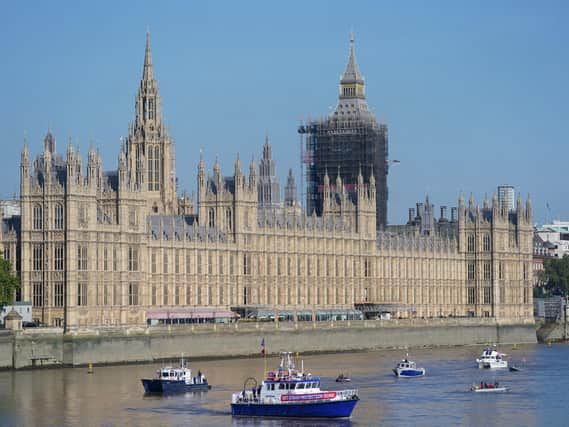Why Freedom of Information disclosures show we are right to focus on loan charge - Greg Wright


They allow ordinary citizens to gain an insight, however fleeting, into what powerful people are saying behind closed doors.
The Yorkshire Post often uses FOIs to obtain information that serves the public interest.
Advertisement
Hide AdAdvertisement
Hide AdMany FOIs are worthy of painstaking analysis because they can show what politicians and officials really think, away from their carefully crafted public statements.
What I never expected to see was my coverage of the loan charge scandal actually cited in documents published as part of an FOI. The fact that senior officials discussed a strategy to “rebut” The Yorkshire Post’s potential coverage of the loan charge with “defensive” statements vindicates our decision to keep shining a light on it.
The FOI in question – which has been analysed on Twitter by the respected tax barrister Keith Gordon – relates to a request for meta-data. According to Mr Gordon, this is information that relates to the handling of an FOI request, and not merely the underlying information.
The disclosures relate to a request for emails between senior officials at HMRC containing the term ‘DR’ when used in the context of disguised remuneration during 2019.
Advertisement
Hide AdAdvertisement
Hide AdA page in the FOI response with the title “Handling and next steps” states: “We will not be doing any proactive comms (communications) activity... We do not respond to social media comments, but we have prepared defensives to ensure we can rebut any criticisms as quickly as possible should this be picked up by media that have previously shown an interest, such as The Yorkshire Post.”
If nothing else, this proves that The Yorkshire Post’s coverage of the loan charge and the “serious distress” it has caused – to quote the Government commissioned Morse review – is forcing officials to pay attention.
The Morse review, which published its findings in 2019 and contained strong criticism of HMRC’s approach to enforcing the loan charge, has not ended the controversy.
There is overwhelming evidence that honest people who had no intention of avoiding their responsibilities as taxpayers are being plunged into despair. MPs from all parties have repeatedly warned that the loan charge is punitive and forms a suicide risk.
Advertisement
Hide AdAdvertisement
Hide AdThis risk was underlined this week when I was contacted by a businessman who believes his life is no longer worth living. He had been repeatedly told the schemes he signed up to were legal by professional advisers.
He told me: “I will have to sell my home and liquidate everything I own to pay HMRC in excess of £0.5m. I have contemplated suicide many times over the last eight months. There is no light at the end of the tunnel and I lie awake at night hoping that I will pass in my sleep. All of the above arises out of the loan charge.”
So far 134 Parliamentarians have signed an open letter to the Prime Minister and Chancellor urging them to find a fair resolution to the loan charge scandal.
The letter, which has been written with the support of the Loan Charge and Taxpayer Fairness All Party Parliamentary Group, states: “We urge you to finally accept that the loan charge is not fair and to consider all options to resolve this issue, fairly and practically, once and for all, to end this nightmare for tens of thousands of UK families but also to get HMRC out of the situation they are in, having failed to predict the impact of the loan charge.”
Advertisement
Hide AdAdvertisement
Hide AdHMRC has stated that the loan charge was introduced to ensure those who used “disguised remuneration” tax avoidance schemes paid their fair share of income tax and national insurance contributions.
A spokesman said: “It is only right that we continue to tackle these type of avoidance schemes as they deprive our public services of vital funding.
“We encourage anyone who is worried about paying the loan charge to contact HMRC so they can help.”
The number of MPs expressing concern about the loan charge is growing every week. This sad saga, which has caused anguish to so many law-abiding people, is far from over.
Advertisement
Hide AdAdvertisement
Hide AdSupport The Yorkshire Post and become a subscriber today. Your subscription will help us to continue to bring quality news to the people of Yorkshire. In return, you'll see fewer ads on site, get free access to our app and receive exclusive members-only offers. Click here to subscribe.
Comment Guidelines
National World encourages reader discussion on our stories. User feedback, insights and back-and-forth exchanges add a rich layer of context to reporting. Please review our Community Guidelines before commenting.